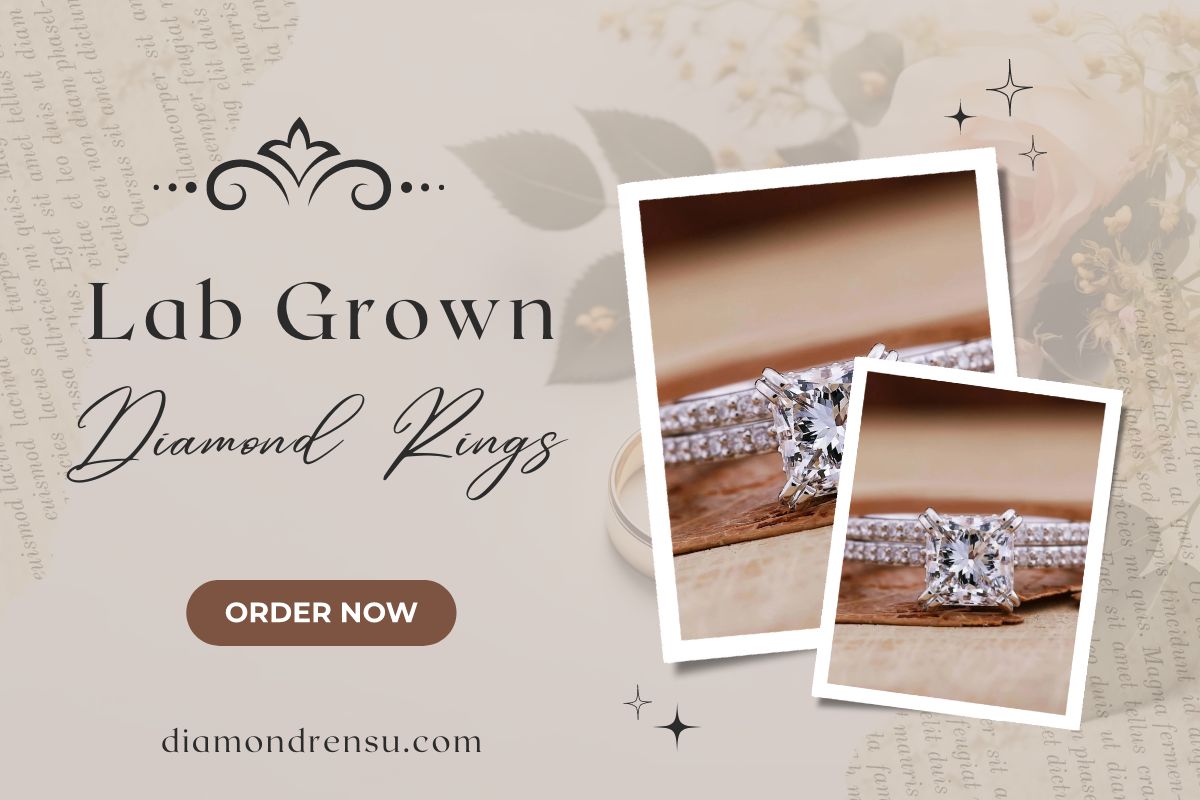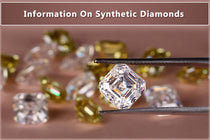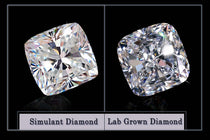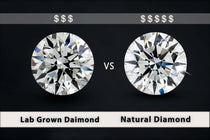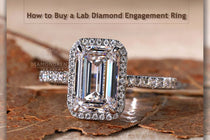Lab-grown diamonds, a modern marvel of technology and sustainability, offer a compelling alternative to their mined counterparts. When you're interested in purchasing a lab-created diamond, it's essential to know the best place to buy one that combines quality, value, and ethical sourcing. Lab-created diamonds, also known as synthetic or cultured diamonds, are identical to natural diamonds in composition and appearance but are crafted in controlled environments using advanced technological processes.
Finding a reputable retailer is crucial as you navigate the market for lab-grown diamonds. You want a seller that not only provides a wide selection of high-quality stones but also upholds transparency in pricing and certification. Renowned for their environmental and ethical advantages, lab-grown diamonds are available through various channels, from online retailers to traditional jewelry stores. Each platform offers different benefits, whether it's the convenience and extensive inventory of online shopping or the personalized service experienced at a brick-and-mortar store.
The journey towards purchasing a lab-grown diamond begins with understanding what sets it apart from natural diamonds. Lab-grown versions share the same physical, chemical, and visual properties as mined diamonds and are evaluated using the same criteria: cut, color, clarity, and carat weight. By opting for a lab-created diamond, you not only embrace a sustainable future but also potentially unlock savings, allowing you to invest in a larger stone or a more intricate setting for the same budget. With the right guidance, you'll find that acquiring a lab-grown diamond is an informed choice that doesn't compromise on the timeless allure and prestige associated with diamonds.
Understanding Lab-Grown Diamonds
In exploring the best places to purchase lab-grown diamonds, it's crucial to grasp what they are, how they rival their natural counterparts, and the quality markers that determine their value.
Origin and Creation Process
Lab-grown diamonds are crafted using advanced technological methods like Chemical Vapor Deposition (CVD) and High Pressure High Temperature (HPHT). In the CVD process, a diamond seed is placed in a chamber and exposed to a carbon-rich gas mixture at a lower temperature. The gas activates, and carbon atoms deposit on the diamond seed, causing it to grow. HPHT diamonds are created by mimicking the natural diamond-growing conditions deep in the Earth: a small diamond seed is exposed to high temperatures and pressures, facilitating the formation of a diamond.
Lab-Grown vs. Natural Diamonds
Your lab-grown diamond is nearly identical to a natural diamond in chemical composition, physical properties, and chemical properties. The primary difference between them lies in their origin: lab-grown diamonds are engineered in controlled environments, whereas natural or mined diamonds form over billions of years beneath the Earth's surface. While they share the same beauty and durability, lab-grown diamonds are often considered a more sustainable and ethical choice due to their reduced environmental impact.
Diamond Characteristics: Color, Cut, Clarity, and Carat
The quality of both lab-grown and natural diamonds is evaluated based on the 4Cs: Color, Cut, Clarity, and Carat. Color grades assess how colorless a diamond is, with grades close to D being the most sought after. The Cut signifies how well the diamond has been shaped, affecting its brilliance; an ideal cut ensures maximum sparkle. Clarity relates to the presence of internal inclusions or external blemishes, with flawless diamonds being exceptionally rare. Lastly, the Carat refers to a diamond's weight, with higher carat stones generally being more valuable, though the other Cs significantly influence the final quality and price of the diamond.
Benefits of Lab-Grown Diamonds
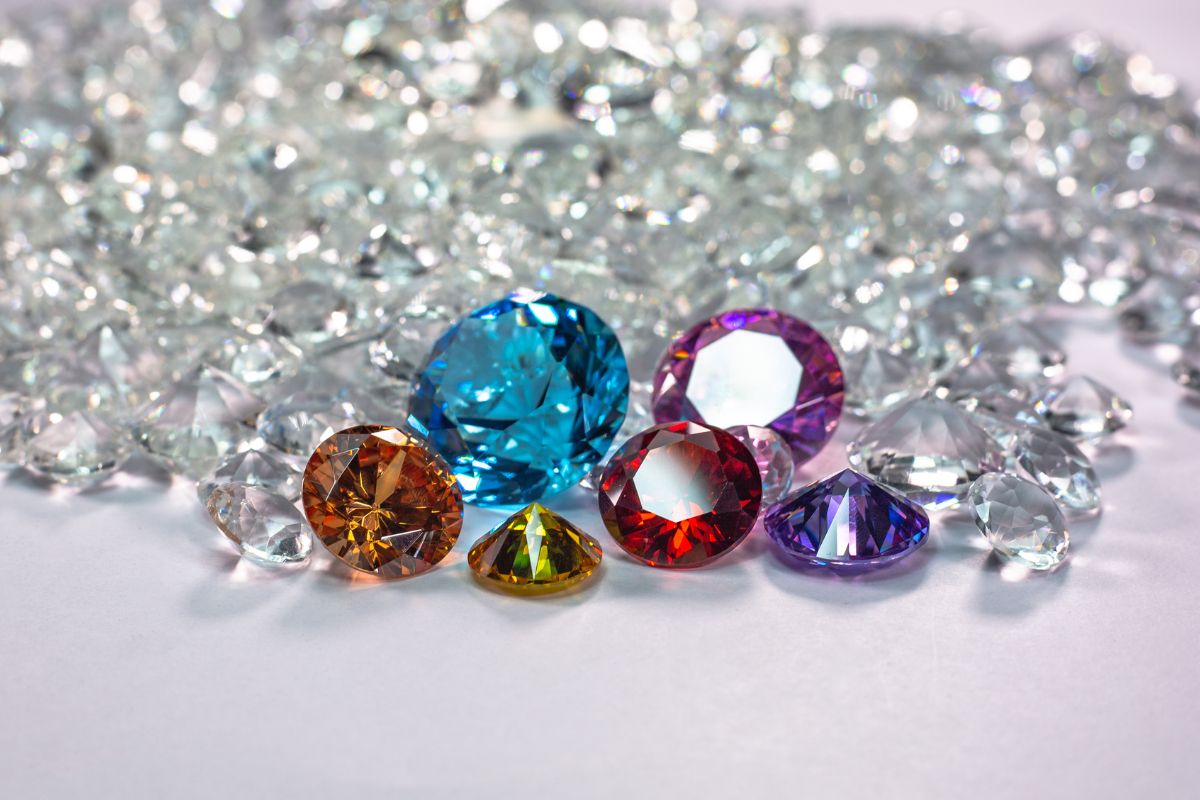
| Benefit | Description |
|---|---|
| 1. Environmental Impact | Lab-grown diamonds have a significantly lower environmental impact compared to mined diamonds. The production process requires less land, water, and energy, and generates fewer carbon emissions. |
| 2. Ethical Sourcing | Lab-grown diamonds are conflict-free and do not contribute to unethical practices associated with some mined diamonds. They offer a transparent and ethical alternative for consumers concerned about the diamond industry's social impact. |
| 3. Cost | Lab-grown diamonds are often more affordable than their mined counterparts. The production process is controlled and efficient, leading to cost savings that can be passed on to consumers. |
| 4. Quality Control | Lab-grown diamonds allow for precise control over the growth conditions, resulting in diamonds with fewer inclusions and consistent quality. Buyers can choose diamonds with specific characteristics and quality grades. |
| 5. Availability of Rare Colors | Lab-grown diamonds can be created in a controlled environment, allowing for the production of diamonds in rare colors that may be challenging to find in natural diamonds. This provides consumers with a wider range of color options. |
| 6. Transparency | Lab-grown diamonds come with detailed documentation about their origin and characteristics. This transparency allows buyers to make informed decisions and ensures the legitimacy of the diamond's source. |
| 7. Technological Innovation | The growth of lab-grown diamonds involves advanced technological processes, fostering innovation in the diamond industry. This continual improvement contributes to the development of sustainable and efficient practices. |
| 8. Reduced Impact on Local Communities | Unlike traditional diamond mining, lab-grown diamonds do not disrupt local ecosystems or communities. There is no displacement of communities or negative effects on wildlife habitats associated with the extraction of natural diamonds. |
| 9. Customization | Lab-grown diamonds can be customized to meet specific size, shape, and color preferences. Buyers have the flexibility to choose diamonds that suit their individual tastes and requirements. |
| 10. Innovation in Jewelry Design | Lab-grown diamonds inspire new possibilities in jewelry design. Their availability in various sizes and colors allows designers to create unique and creative pieces that may not be feasible with natural diamonds. |
When considering lab-grown diamonds, you're likely seeking out options that align with ethical standards, have reduced environmental impacts, and offer value with respect to affordability.
Ethical Considerations
With lab-grown diamonds, you're assured of conflict-free gems. They are ethically sourced, eliminating the concerns associated with diamond mining that can involve human rights abuses. Lab-grown diamonds provide a peace of mind that your beautiful piece of jewelry isn’t tarnished by ethical dilemmas often associated with mined diamonds.
Environmental Impact
The creation of lab-grown diamonds results in lower emissions and reduced environmental degradation compared to traditional mining operations. Many producers of lab-grown diamonds are now switching to renewable energy sources to power their facilities, emphasizing the role this innovation plays in sustainably grown diamond production.
Value and Affordability
When it comes to value and affordability, lab-grown diamonds shine bright. They often cost less than their mined counterparts while offering the same quality and sparkle, which means you can stick to your budget without compromising on the luxury experience. Your investment in a lab-grown diamond also supports technological advancements in gemstone production.
Choosing the Right Lab-Grown Diamond
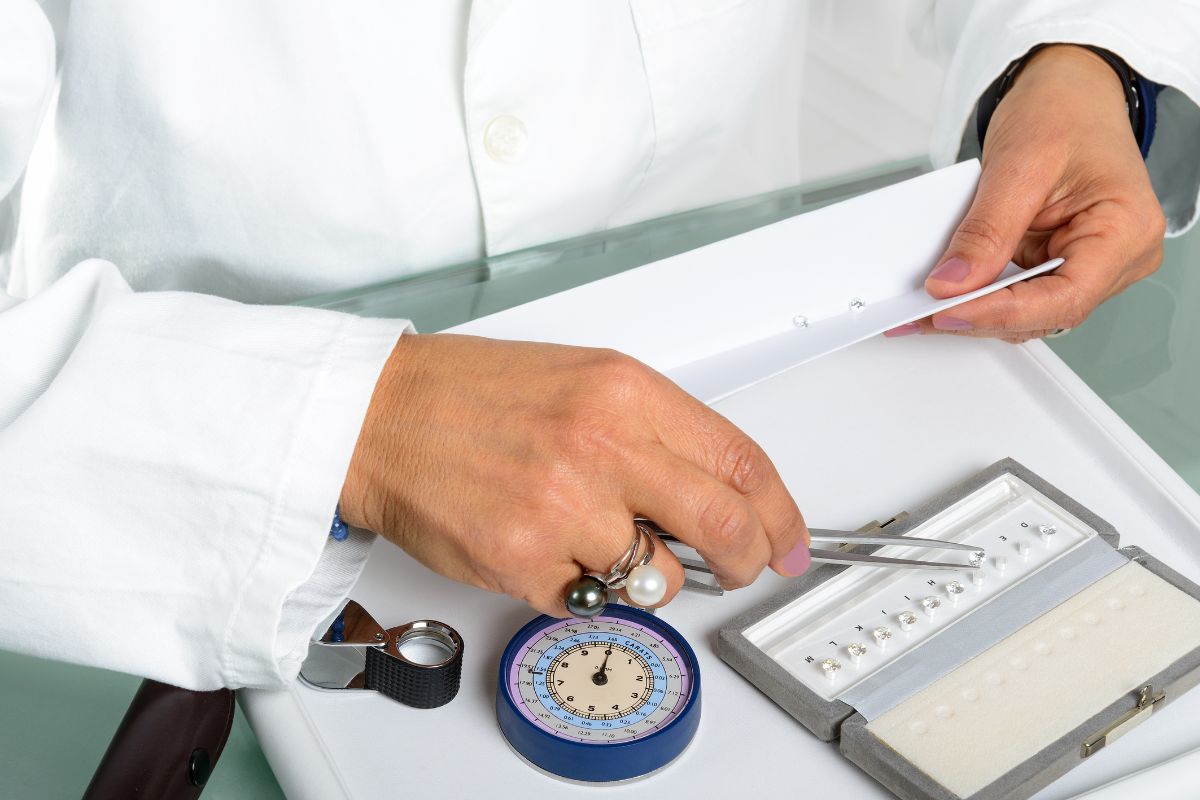
When selecting a lab-grown diamond, your focus should be on its quality, the certifications it carries, and the options available for customization to ensure it meets your specific needs, especially if it's for something as important as an engagement ring.
Evaluating Diamond Quality
Understanding the quality of a lab-grown diamond is critical in the diamond buying process. Look for clarity to check for inclusions, which are the tiny imperfections that can affect a diamond's appearance. Evaluate the cut, which influences how the diamond reflects light, and thus its brilliance. The color should be considered as well, with most buyers preferring a more colorless appearance. Pay attention to the carat weight too, which measures the diamond's apparent size.
Certifications from Reputable Institutions
A reliable way to assess a lab-grown diamond's quality is through its certifications. The Gemological Institute of America (GIA) and the International Gemological Institute (IGI) are two authoritative bodies that grade diamonds. A certificate from these institutions will provide a professional and unbiased evaluation of the diamond, giving you confirmation that your diamond meets high standards.
Customization and Personalization Options
The ability to customize an engagement ring gives a personal touch that makes it unique. Explore various engagement ring settings to find the perfect match for your lab-grown diamond. Consult with a diamond expert to understand all available customization options. Whether it’s engraving or choosing a specific setting style, personalization can make your engagement ring truly one-of-a-kind.
Top Retailers for Lab-Grown Diamonds
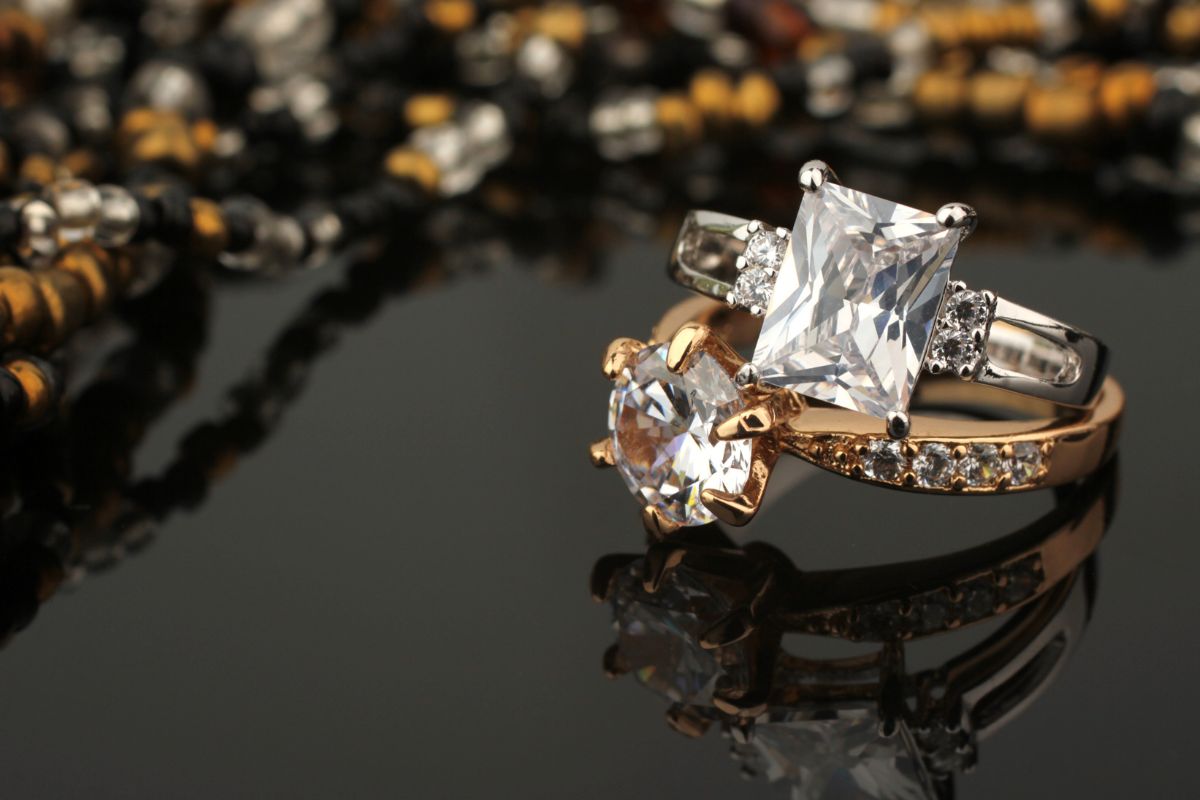
When you're looking to purchase lab-grown diamonds, selecting the right retailer is crucial. Not only should you look for high-quality diamonds, but also customer service that supports your purchase from browsing to after-sales.
Brilliant Earth and Blue Nile
Brilliant Earth: A leader in ethically sourced fine jewelry, they offer a wide selection of high-quality lab-grown diamonds. Their commitment to sustainability extends to providing detailed information about the origin and creation process of their diamonds.
Blue Nile: Known for revolutionizing the diamond industry with their online presence, Blue Nile has an impressive collection of lab-created diamonds. They pride themselves on competitive pricing and educational resources that ease your decision-making process.
Clean Origin and James Allen
Clean Origin: Specializes exclusively in lab-grown diamonds, promoting a transparent pricing model. Their 100-day return policy reflects their dedication to customer service and satisfaction in the diamond industry.
James Allen: Provides an interactive online shopping experience with high-definition videos of their diamonds. They have a broad selection of lab-created diamonds and offer virtual consultations to ensure you find the perfect jewelry piece.
VRAI and Grown Brilliance
VRAI: As a brand that creates diamonds in their own zero-emission foundry, VRAI gives you access to sustainably crafted lab-grown diamond jewelry. This direct creator-to-consumer approach ensures the integrity and quality of their fine jewelry.
Grown Brilliance: This retailer offers a variety of lab-created colored diamonds, making them unique. With personalized service and a keen focus on quality, Grown Brilliance is quickly earning a reputation as a trusted lab-grown diamond brand.
Jewelry Options with Lab-Grown Diamonds
When considering lab-grown diamonds for your jewelry, you have a variety of exquisite options that offer both beauty and value. Whether you're marking a special occasion or simply treating yourself, these sustainable gems provide the same brilliance and clarity as natural diamonds at a fraction of the cost.
Engagement and Wedding Jewelry
Engagement Rings: Lab-grown diamonds are an excellent choice for your engagement ring centerpiece. You can select from a range of cuts and settings to suit your style, whether it be a classic solitaire or a more intricate halo design.
- Solitaire Rings: Feature a single lab-grown diamond, highlighting its clarity and sparkle.
- Halo Rings: Encircle the center stone with smaller diamonds, enhancing its size and brilliance.
Wedding Bands: If you're planning your wedding, consider lab-grown diamonds for both traditional and modern wedding bands. These can be customized to match or complement your engagement ring.
- Bridal Sets: Seamlessly designed engagement and wedding ring combinations.
- Stackable Rings: Versatile bands that allow you to add or interchange rings over time.
Jewelry Insurance: Just like any precious item, your lab-grown diamond engagement rings and wedding bands should be protected with jewelry insurance, ensuring peace of mind against loss or damage.
Fine Jewelry Options Beyond Rings
Lab-grown diamonds aren't limited to engagement and wedding jewelry. They also make stunning additions to various types of fine jewelry.
- Tennis Bracelets: Elegant and timeless, these bracelets feature a single row or multiple rows of lab-grown diamonds, offering a luxurious sparkle on your wrist.
- Hoop Earrings: A staple in any jewelry collection, hoop earrings with lab-grown diamonds provide understated elegance or a bold statement, depending on their size.
- Pendant Necklaces: From classic solitaires to unique shapes, lab-grown diamond pendants are a versatile choice that can be worn every day or on special occasions.
Whether you are celebrating a milestone or investing in your jewelry collection, lab-grown diamonds offer a sustainable and affordable way to own pieces that are as lasting and beautiful as any traditional diamond jewelry.
Making the Purchase
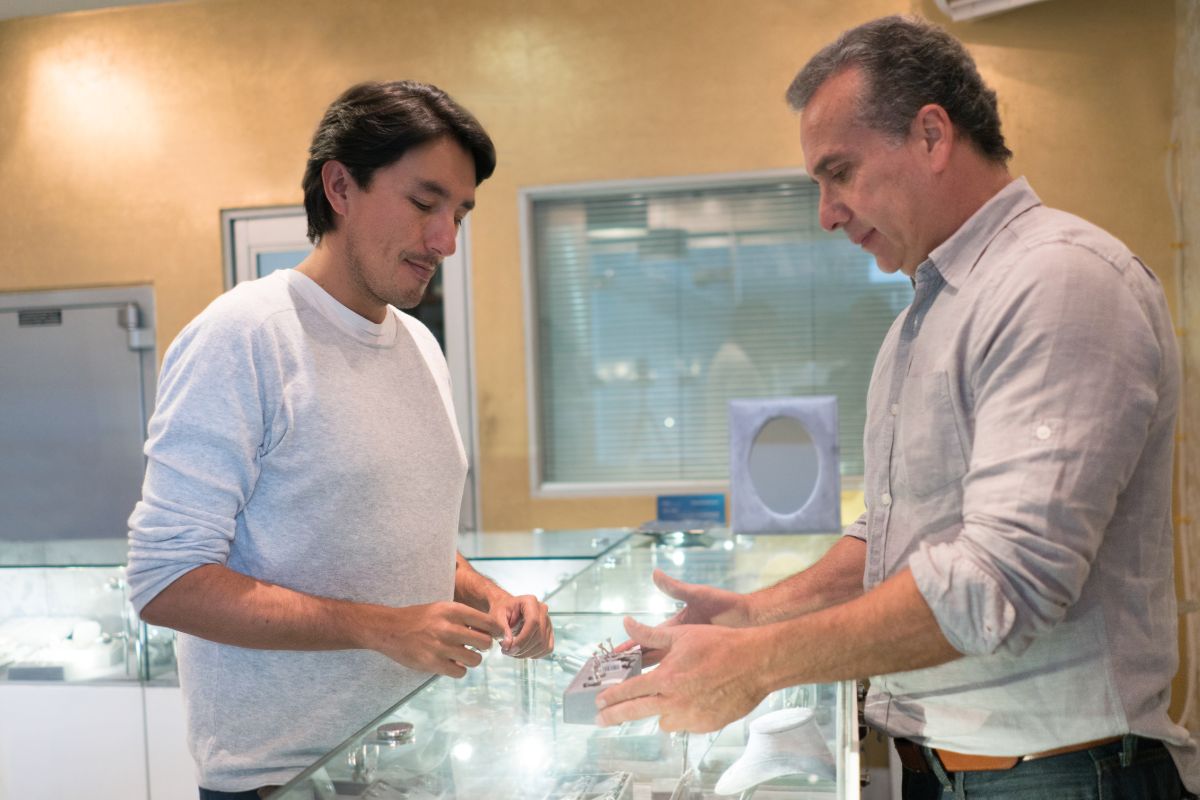
When you decide to buy lab-grown diamonds, it's essential to consider the aspects of investment potential, the purchasing process, and the variety of jewelry options available to you.
Considerations for Investment and Resale
Investing in lab-grown diamonds may offer an affordable option with a value that could potentially change over time. It's important to focus on diamond quality when considering resale value. Educate yourself on the 4Cs (cut, color, clarity, and carat weight) and seek price transparency to ensure that your investment holds its integrity. Remember that resale markets can vary and prices for lab-grown diamonds may differ from natural diamonds.
Navigating the Diamond Buying Experience
Selecting a diamond involves balancing high-quality diamonds with your budget. Be sure to engage with vendors that emphasize customer service, helping you through the full lifecycle of the purchase, from selection to after-care. Look for providers offering a lifetime warranty, which signifies confidence in their product's durability. Reputable sellers will also educate buyers about their offerings, facilitating an informed and confident buying decision.
Options for Custom and Pre-Made Jewelry
For those who want a unique touch, custom jewelry allows you to create personalized engagement rings or other pieces. Alternatively, pre-made options can provide convenience and competitive prices. Regardless of your choice, ensure that the vendor provides transparent pricing to find the best affordable options. Remember, your lab-grown diamond jewelry should align with both your style preferences and financial considerations.
After Purchase: Care and Insurance
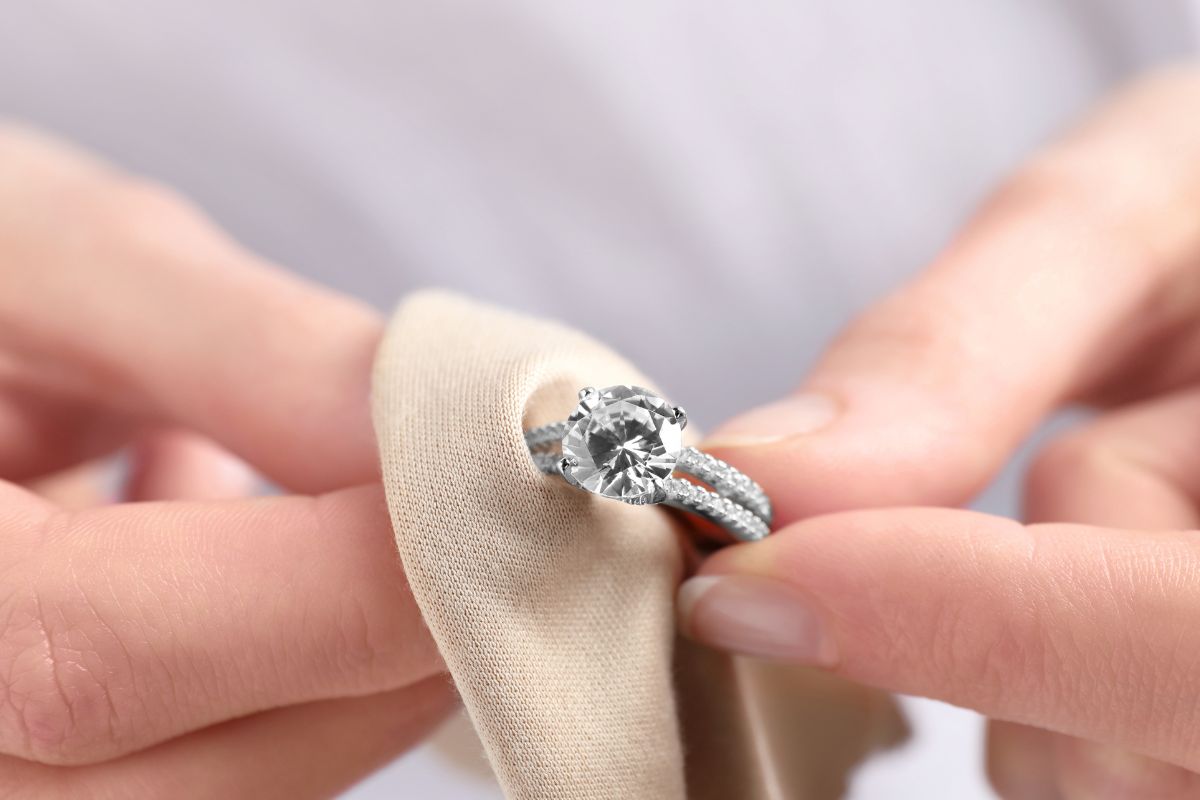
Once you've purchased your lab-grown diamond jewelry, it's essential to maintain its beauty and protect your investment. Proper care can keep your pieces in pristine condition, while understanding your options for insurance and warranties can give you peace of mind in the long run.
Maintenance and Upkeep
Lab-grown diamond jewelry, much like natural diamond pieces, demands regular maintenance to ensure its sparkle and structure remain intact. For engagement rings or other fine jewelry that you wear often, consider these tips:
- Clean gently: Soak your jewelry in a solution of warm water with mild dish soap, then use a soft brush to remove any buildup. Pat dry with a lint-free cloth.
- Regular inspections: Take your jewelry to a professional jeweler every six months to check for loose stones or any wear and tear on the setting.
Insurance and Warranty Options
Your lab-grown diamonds are a significant commitment, and choosing the right jewelry insurance and lifetime warranty plan is crucial for safeguarding your precious items against loss, theft, or damage.
- Lifetime warranty: Many reputable jewelers offer a lifetime warranty on lab-grown diamond jewelry, covering any potential manufacturing defects. Be sure to review what exactly is included in your policy.
- Insurance: Consider a specialized jewelry insurance policy that offers comprehensive coverage, which may include repair or replacement of your lab-grown diamonds. Ensure that your policy's coverage matches your jewelry's full replacement value.
Frequently Asked Questions
When it comes to selecting the perfect lab-grown diamond, it’s important to know where to shop, what to look for, and how to discern quality. This FAQ section addresses your key concerns for a confident purchase.
What are reliable online retailers for purchasing lab-created diamonds?
Reliable online retailers often provide detailed information about their products and sourcing practices. Brands that utilize lab-grown diamonds ensure authenticity and quality, providing assurance for your online purchase.
How do I identify the best-value lab-grown diamonds when shopping?
Assess the diamonds based on the 4Cs—cut, clarity, color, and carat. The best value comes from balancing these attributes within your budget. Transparency in pricing and certification can also signal good value.
Which companies specialize in certified and ethically sourced lab-grown diamonds?
Companies that provide certified and ethically sourced lab-grown diamonds openly share their sustainability commitments and offer third-party gemstone certifications, demonstrating their adherence to ethical standards.
What factors should I consider to ensure I'm buying a high-quality lab-grown diamond?
High-quality lab-grown diamonds should have exceptional clarity, color, and cut, with a certificate from a reputable gemological laboratory. Inspect the certification to ensure it meets your standards for a quality gemstone.
Are there advantages to buying lab-grown diamonds from well-known brands over new market entrants?
Well-known brands often have established reputations that guarantee a certain level of quality and customer service. However, new market entrants may offer competitive pricing and innovative products, potentially providing a better value proposition.
How do lab-grown diamonds from major retailers compare to those from specialized online stores?
Major retailers may offer a wider selection and different guarantees, while specialized online stores could provide a more personalized service and niche products. Compare their offerings to see which matches your preference for quality and value.
Checkout some of our top collections:

